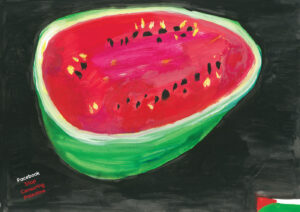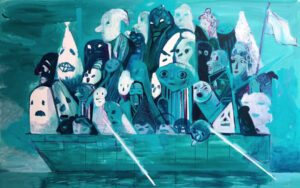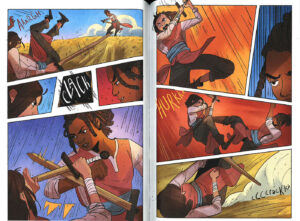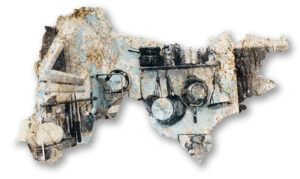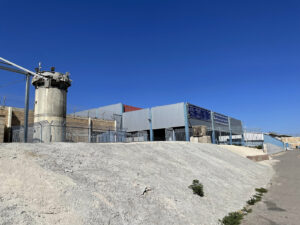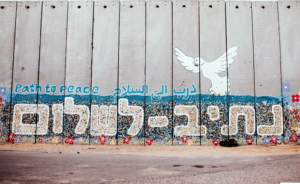The Paris-based director Michale Boganim was born in Haifa, raised in Israel and studied philosophy at the Hebrew University before studying anthopology and filmmaking in Paris and London. She is the director of several documentaries and two feature films.
KARIM GOURY: How did you get into filmmaking?
MICHALE BOGANIM: I chose cinema as a medium to tell personal stories. I went to film school, I was passionate about cinema and anthropology, having been inspired by [director and anthropologist] Jean Rouch. I found that cinema was a good vector to transmit all the personal things I had to say.
TMR: In your films, there are places that recur — Odessa, Ukraine, Israel, France — that are also places in your biography. It’s almost as if your geography is your biography.
BOGANIM: Yes, I work a lot with place as a starting point; it is from places that I begin to weave stories. Odessa, the forbidden zone of Chernobyl, fascinated me, as did Beirut, and the border between Lebanon and Israel, which totally blew my mind, because it is so close, at the same time.
TMR: Did you go to the Lebanese-Israeli border for scouting?
BOGANIM: I haven’t been to Lebanon, but I know that border and I’ve been there many times. I know it’s very close and it has always made me wonder about places, about borders.
Karim Goury Reviews Tel Aviv-Beirut
TMR: These are places that relate to your own origins, is there perhaps something of the unknown about your origins, a mystery that you are looking for?
BOGANIM: No, I don’t think there’s any mystery, no. On the other hand, I have a complicated background because I have spent a lot of time in several different countries, so anchoring in one country is challenging for me.
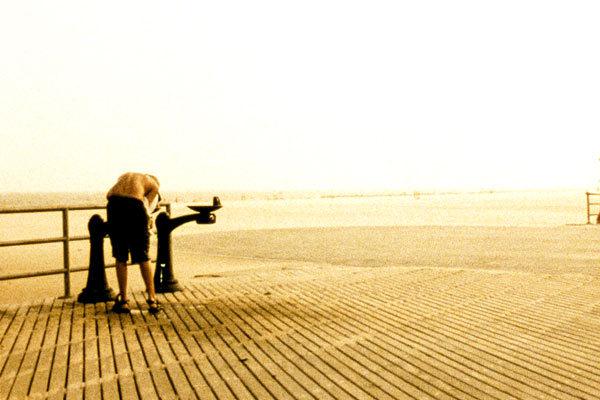
TMR: In Odessa…Odessa! there is a character who carries a suitcase and appears at key moments in the film. Who is he?
BOGANIM: It’s a somewhat imaginary character, the wandering Jew, who links the three stories. He’s a bit of a traveler, who takes us through the film.
TMR: You made several documentaries over a 10-year period before shooting Land of Oblivion; how did you decide to move into fiction?
BOGANIM: For me it’s pretty much the same principle. There is a lot of staging in my documentaries and a lot of documentary in my feature films. I always mix the two. I often start from real stories, as in Tel Aviv-Beirut or in Land of Oblivion. I also fictionalize my documentaries, in a way.
TMR: At what point do you say to yourself, for example, with Tel Aviv-Beirut, I’m going to treat it as fiction, with actors and another mode of production?
BOGANIM: Land of Oblivion was conceived as fiction from the start. After Odessa…Odessa! I felt like moving on to fiction and a lot of people pushed me to do that. I wanted to make Tel Aviv-Beirut as a documentary, but I couldn’t, so I made it into a fiction.
TMR: Why couldn’t you?
BOGANIM: The Lebanese who collaborated with Israel during the war did not want to talk. These refusals made me decide to build it as a fiction. During the casting, I had many rejections from Lebanese actors and actresses. To a certain extent, those who accepted took a risk. I believe that this is the first time that Lebanese and Israeli actors have acted together in a film.
TMR: Why did you build the film as a triptych?
BOGANIM: 1984, 2000, and 2006 are key dates in the Lebanon war. 1984 marks the beginning of Hezbollah’s influence in the conflict, 2000 is the date of Israel’s unilateral withdrawal from South Lebanon, and 2006 is the return of the war, the second Lebanon war. It was important for me to show that time passes and the war continues, like a terrible perpetual movement, the eternal return of events. It is a transgenerational war. But my subject is the Tsadal, the Lebanese who took sides with Israel and whom Israel betrayed. Even if the film does not take sides, I wanted it to be critical of the invasion of South Lebanon and critical of the Israeli army that betrayed its Lebanese allies in 2000.
TMR: In Land of Oblivion, you chose the Chernobyl disaster as your background.
BOGANIM: Yes, I went there and I was very moved by the city of Prypiat. It’s a ghost town with 50,000 inhabitants, it’s really very special. It is a place of fiction. I wanted to reconstruct the stories inside this city.
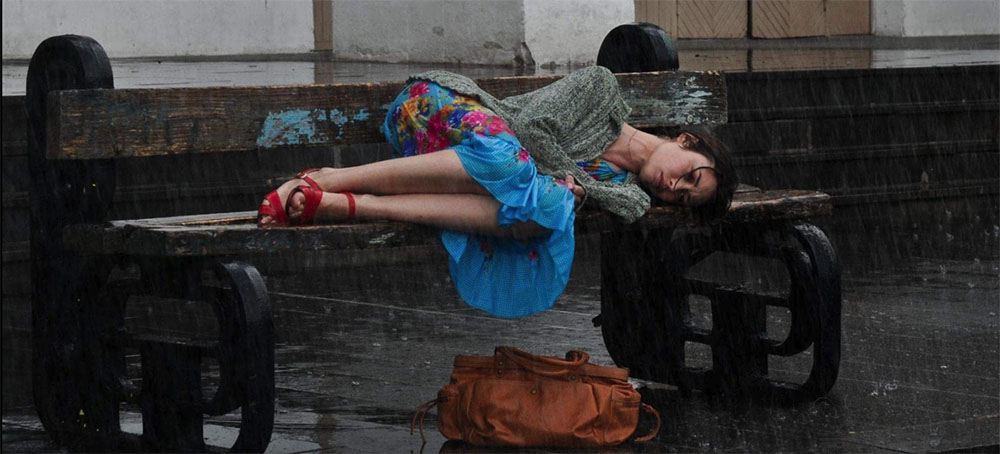
TMR: Had you seen the Chernobyl television series?
BOGANIM: No, I made the film before the series! They’re the ones who saw my movie, I heard from several sources! (Laughs) But this is different. The series only deals with the event, in fact. I deal with the aftermath of Chernobyl.
TMR: Your film begins with the events, then follows the character and the love story of Anya, who becomes radioactive herself. She can’t leave this contaminated territory, just as in Tel Aviv-Beirut, Yossi seems more attached to South Lebanon where he is an occupation soldier, than living with his wife and son in Israel.
BOGANIM: You can get attached to places that are radioactive or hostile. There’s something addictive about those places. In Land of Oblivion, Anya can’t leave her homeland. In Tel Aviv-Beirut, Yossi is addicted to the war. Lebanon becomes his raison d’être. He existed there as a general, but when he returns to Israel in the third part of the film, he becomes a lowly official in a hospital. He lost his status when he left Lebanon, just as the Lebanese lost everything when they fled their country. What interested me was to make a film on both sides of the border.
TMR: You speak of exile, of uprooting. Does nostalgia play an important role in your films?
BOGANIM: Nostalgia is the loss of a place, it is the loss of a history, it is to be always a little hung up on your past. There is, in the first part of Tel Aviv-Beirut, the loss of a land without borders that is now totally fenced in by borders. I think the whole film is punctuated by loss, the loss of the son, the loss of the father, of what was before the Levant, a unique land. It’s about loss.
TMR: The slow, almost infinite tracking shots, which sometimes place us behind the action and which can even be at the wrong time in a scene, which you use in all your films, contribute, it seems to me, to this feeling of nostalgia.
BOGANIM: Yes, there is that. That sort of slow pace, not necessarily following the action. But I do it in an unconscious way. I am not in the action, but in the head of a spectator who also looks at what is around, the places, the atmosphere and not necessarily the action itself, which we catch up with later. And it gives a melancholy and slow feeling to all my films.
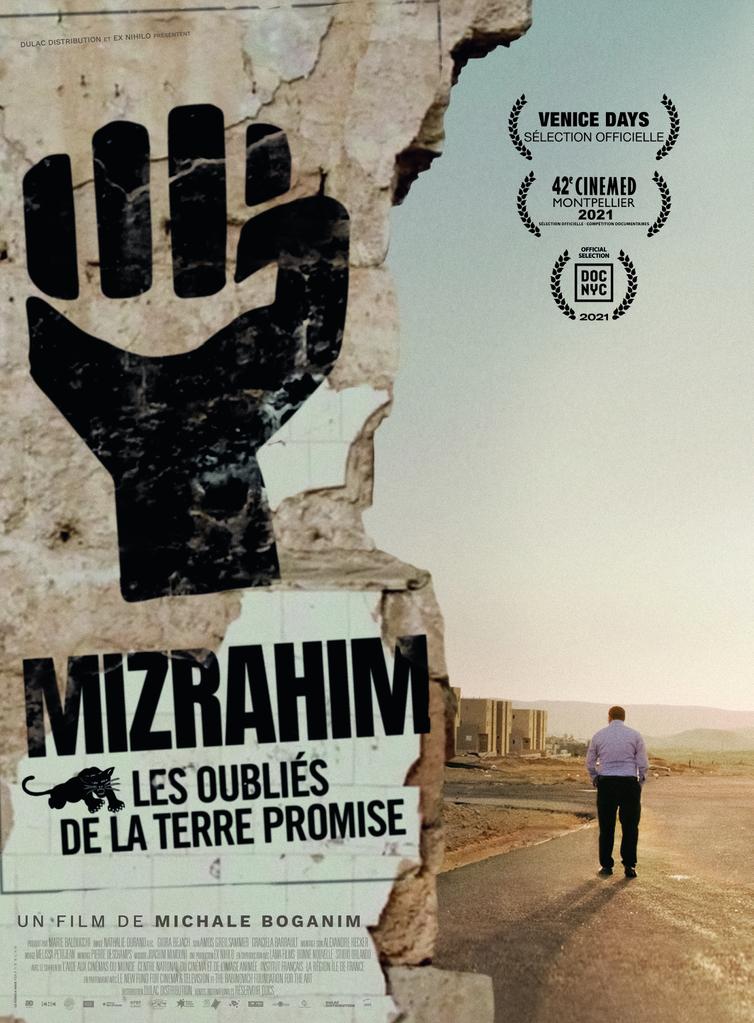
TMR: The scene of Fouad and Tanya’s escape in Tel Aviv-Beirut is an action scene that one would expect to be fast and suspenseful, but you also film it in a slow tracking shot.
BOGANIM: I don’t know why I do that. It’s true that it’s not done with jump cuts. This gives a thickness to time, to space. I don’t like films that are too cut up. In this scene, perhaps we feel the loss, the feelings of these beings better than if we were in the action itself. We can see the loss of everything they leave behind.
TMR: This way of filming made me think of Chantal Akerman (1950-2015).
BOGANIM: Yes. She’s been a big influence. I know her films, I’ve always seen that in her. A mixture of fiction and documentary and the way she shoots with long dolly shots. Maybe it has a relationship to time, to space. Where I also find myself in Chantal Akerman’s films is that she makes both documentaries and features, she mixes the two in her films. She is not anchored in a territory either, she is a woman, a citizen of the world. She has made films everywhere.
TMR: How do you work with sound in your films?
BOGANIM: I work a lot on the soundtrack of my films. Whether in Odessa…Odessa!, Land of Oblivion or Tel Aviv-Beirut, we accentuated the soundscapes. For example, in Israel, there are many sounds of work that I have accentuated. The atmosphere in my films is generally not realistic. In Tel Aviv-Beirut the sound of helicopters and airplanes is often out of frame. We don’t really see the war. We don’t see the explosion that kills Fouad’s wife, we hear it. I like to show without showing. Shooting shadows, the silhouette of a helicopter in a puddle.
TMR: But you decided to film the scene of Fouad and Tanya’s escape to Israel.
BOGANIM: I wanted that evacuation scene. I had seen these real images that really struck me. I think that was the trigger for the film. These Lebanese people were in the crossfire between Hezbollah and Israel. They were on the border and I wanted to recreate that. I could have made an ellipsis but it would not have been understood.
TMR: There is a shot in Land of Oblivion, where you film the departure of a bus. Again, you film the wheels in a slow tracking shot. The bus disappears but the camera continues on the tracks it leaves in the contaminated mud of Prypiat.
BOGANIM: Yes. This is the last shot of the film. We stay on the radioactive water.
TMR: Are you obsessed with the traces we leave behind?
BOGANIM: What you leave behind, yes, I think. I’m a bit obsessed with the past.



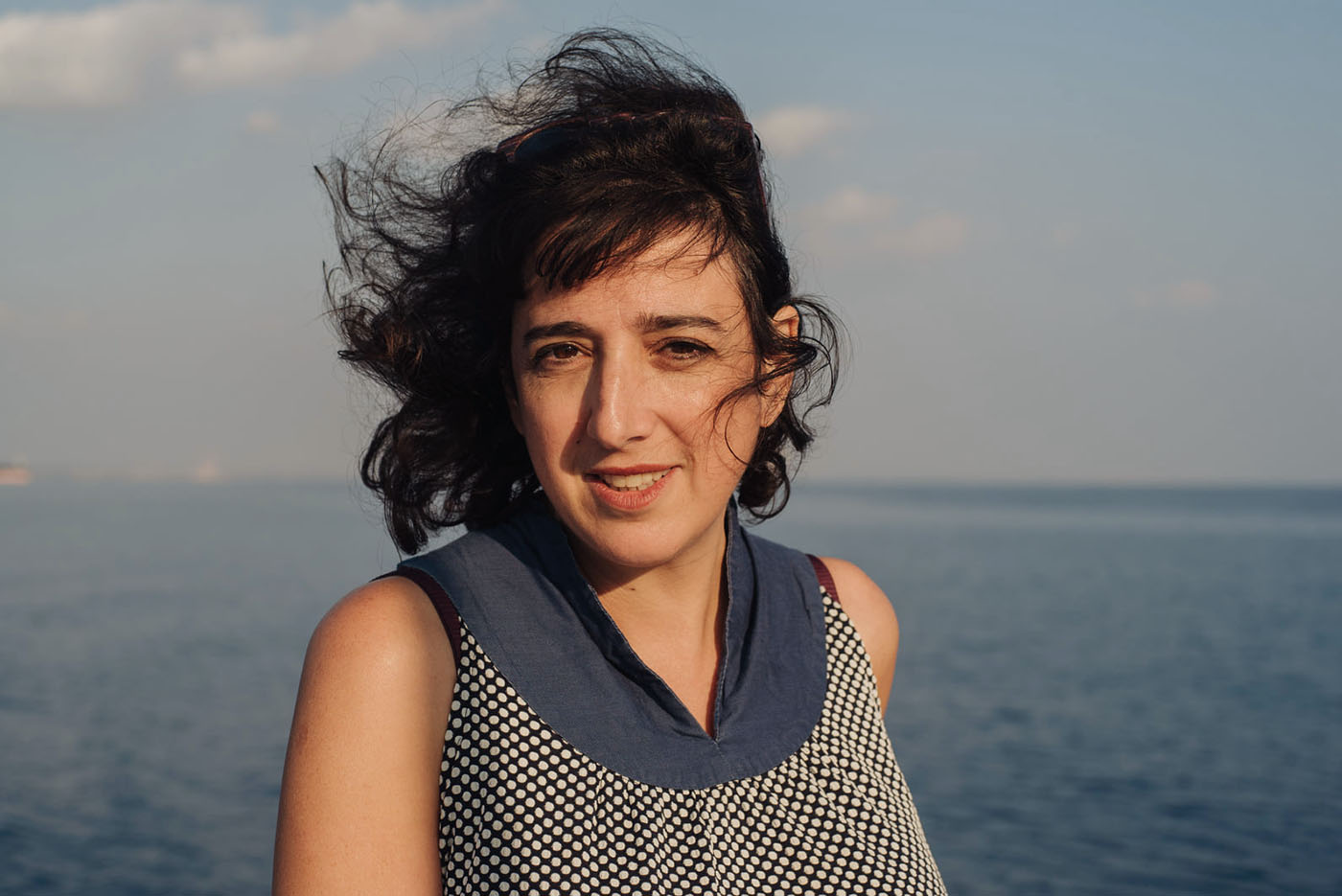
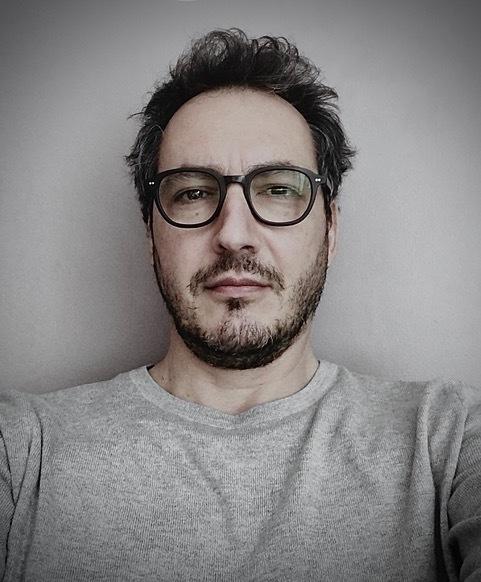












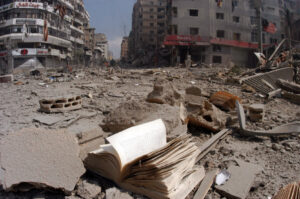







![Ali Cherri’s show at Marseille’s [mac] Is Watching You](https://themarkaz.org/wp-content/uploads/2025/09/Ali-Cherri-22Les-Veilleurs22-at-the-mac-Musee-dart-contemporain-de-Marseille-photo-Gregoire-Edouard-Ville-de-Marseille-300x200.jpg)

























